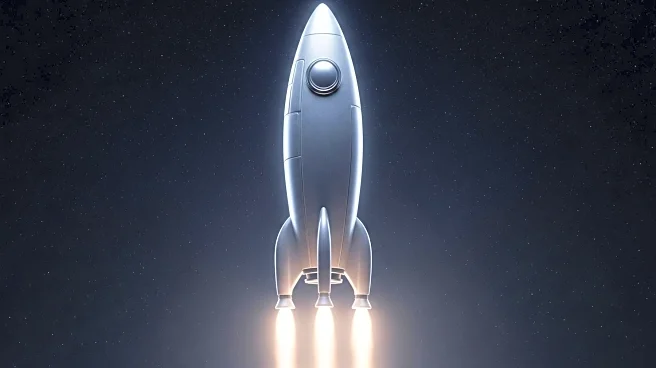What's Happening?
Tesla's board of directors has unveiled a proposed pay package for CEO Elon Musk that could potentially make him the world's first trillionaire. The package, which requires shareholder approval, is contingent upon Musk achieving aggressive growth targets, including elevating Tesla's market capitalization to at least $8.5 trillion by 2035. Currently, Tesla's market cap stands at just over $1 trillion. The proposal allows Musk to earn 12% of Tesla's total stocks in 12 separate packages over a decade. This move is seen as an effort to retain Musk, who has reportedly threatened to leave the company multiple times. The board's decision comes amidst ongoing legal disputes over Musk's previous $56 billion pay package from 2018.
Why It's Important?
The proposed pay package underscores the significant influence and control Elon Musk holds over Tesla. If approved, it would further consolidate his position within the company, potentially increasing his stake to 25%. This development raises questions about corporate governance and the precedent it sets for executive compensation. Critics argue that such a package could exacerbate income inequality and concentrate wealth among a few capital holders. The decision also highlights the board's reliance on Musk's leadership to drive Tesla's ambitious goals in AI and robotics, despite his involvement in other ventures like SpaceX and the X social media platform.
What's Next?
The proposal will be put to a shareholder vote in November. If approved, it could lead to significant shifts in Tesla's strategic direction, focusing on achieving the outlined growth targets. The decision may also prompt discussions among investors and analysts regarding the sustainability of such compensation packages and their broader implications for corporate governance. Additionally, public scrutiny over income disparity and executive pay may intensify, potentially influencing future policy and regulatory considerations.
Beyond the Headlines
The proposed pay package for Elon Musk not only highlights the challenges of retaining top executive talent but also raises ethical and social questions about wealth distribution. As Tesla aims to become a leader in AI and robotics, the company's success could redefine industry standards and influence global markets. However, the concentration of wealth and power in the hands of a few individuals may lead to increased public and regulatory scrutiny, potentially impacting Tesla's operations and strategic decisions in the long term.








